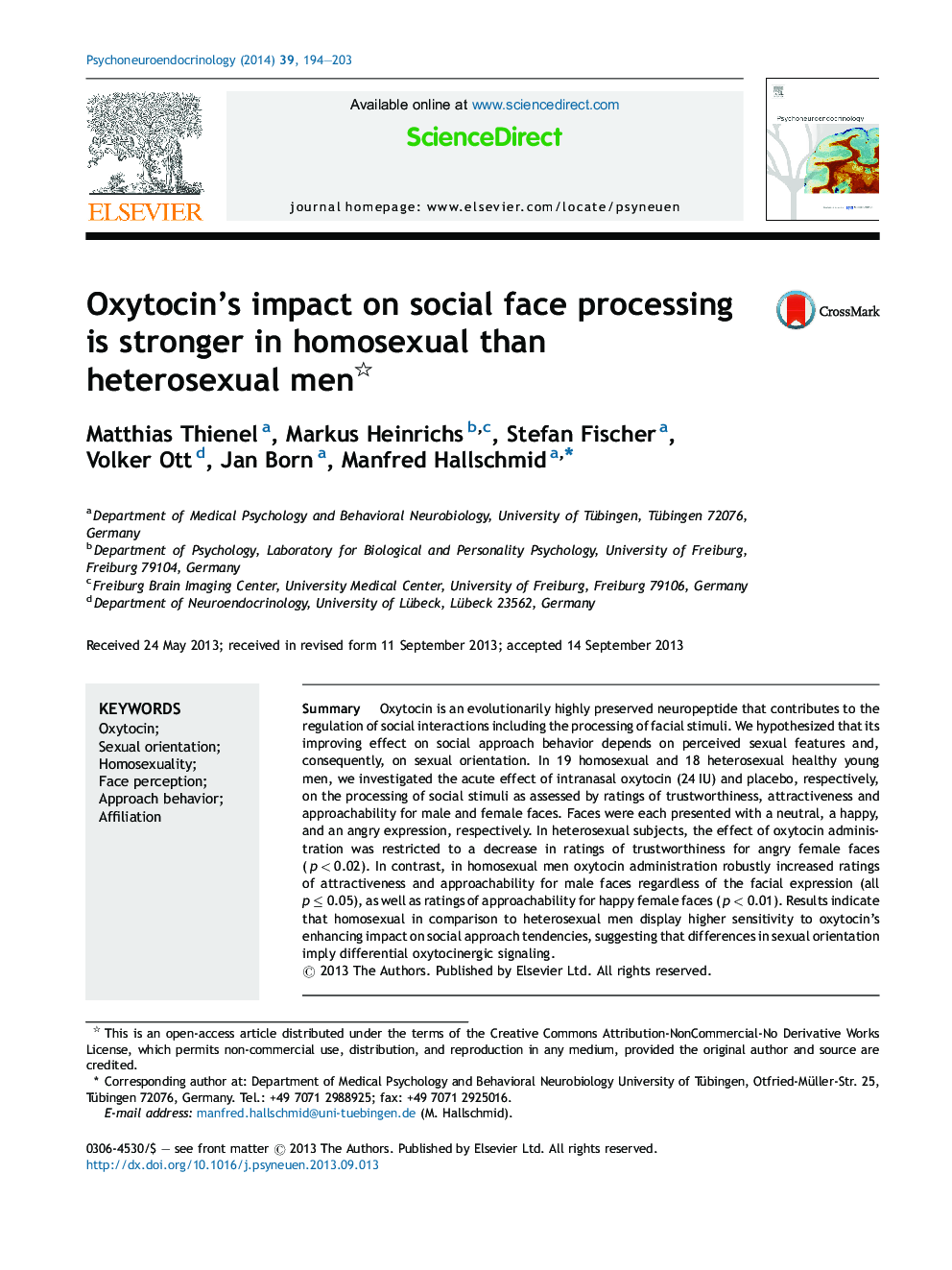| Article ID | Journal | Published Year | Pages | File Type |
|---|---|---|---|---|
| 6819913 | Psychoneuroendocrinology | 2014 | 10 Pages |
Abstract
Oxytocin is an evolutionarily highly preserved neuropeptide that contributes to the regulation of social interactions including the processing of facial stimuli. We hypothesized that its improving effect on social approach behavior depends on perceived sexual features and, consequently, on sexual orientation. In 19 homosexual and 18 heterosexual healthy young men, we investigated the acute effect of intranasal oxytocin (24 IU) and placebo, respectively, on the processing of social stimuli as assessed by ratings of trustworthiness, attractiveness and approachability for male and female faces. Faces were each presented with a neutral, a happy, and an angry expression, respectively. In heterosexual subjects, the effect of oxytocin administration was restricted to a decrease in ratings of trustworthiness for angry female faces (p < 0.02). In contrast, in homosexual men oxytocin administration robustly increased ratings of attractiveness and approachability for male faces regardless of the facial expression (all p â¤Â 0.05), as well as ratings of approachability for happy female faces (p < 0.01). Results indicate that homosexual in comparison to heterosexual men display higher sensitivity to oxytocin's enhancing impact on social approach tendencies, suggesting that differences in sexual orientation imply differential oxytocinergic signaling.
Related Topics
Life Sciences
Biochemistry, Genetics and Molecular Biology
Endocrinology
Authors
Matthias Thienel, Markus Heinrichs, Stefan Fischer, Volker Ott, Jan Born, Manfred Hallschmid,
